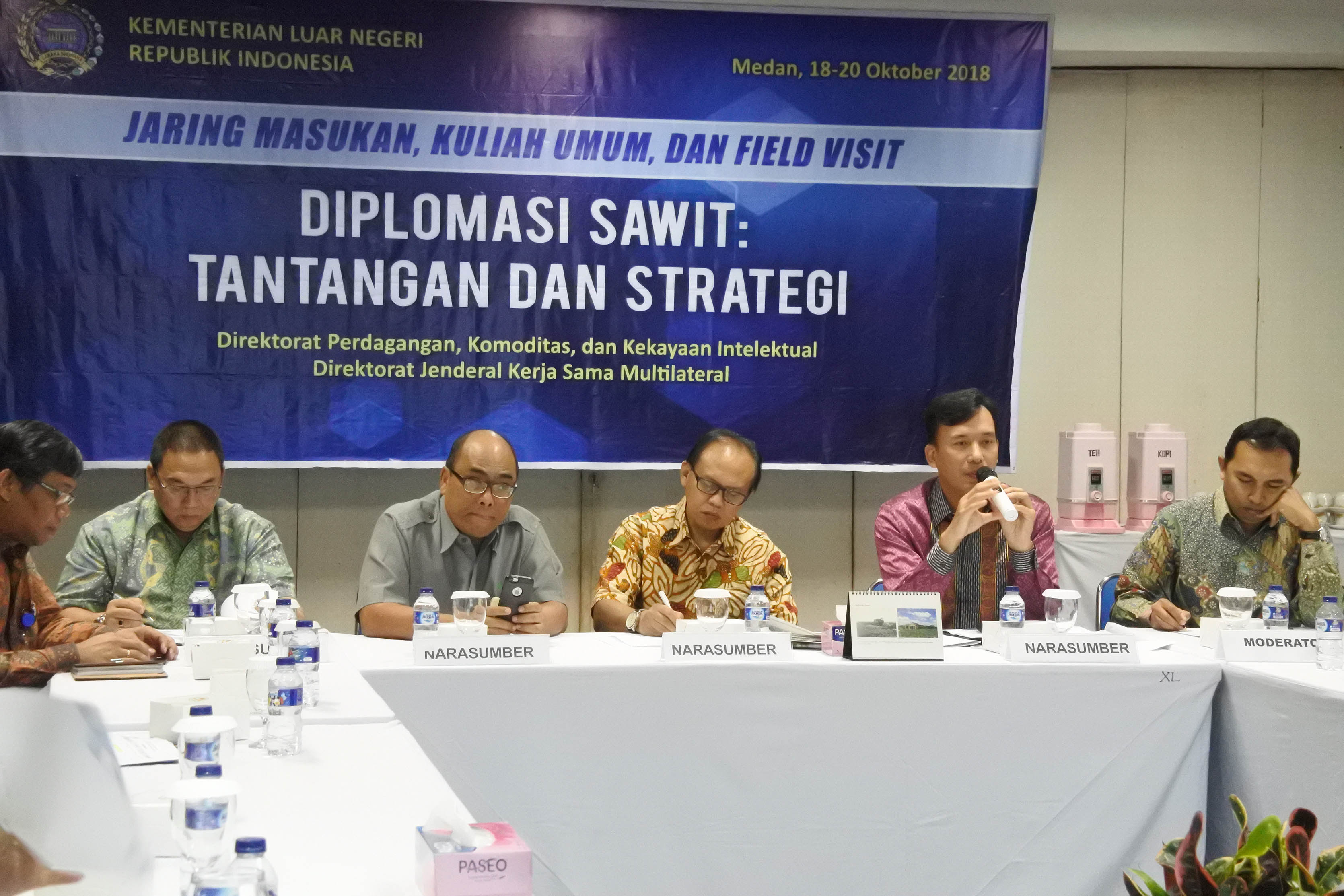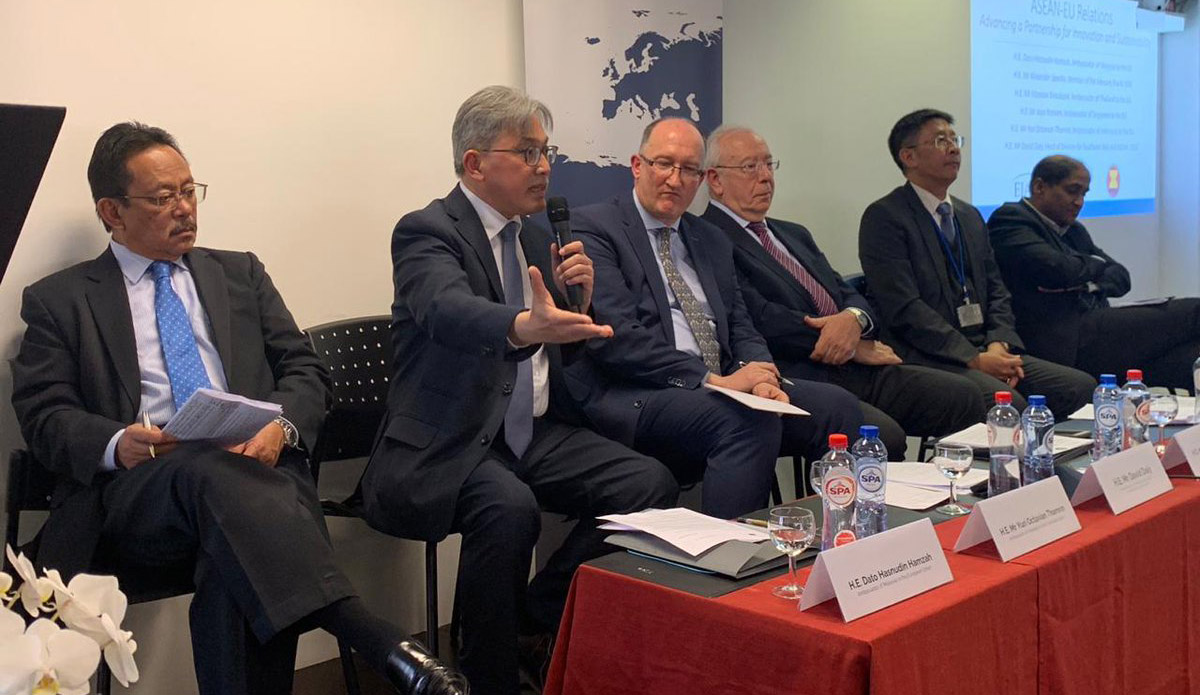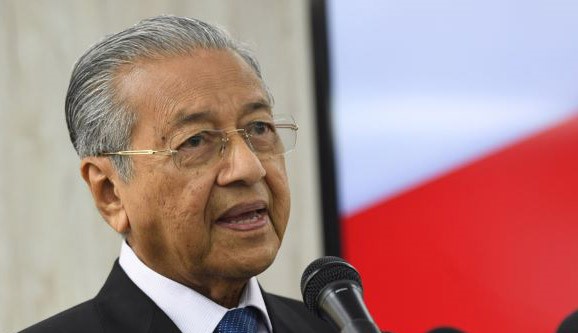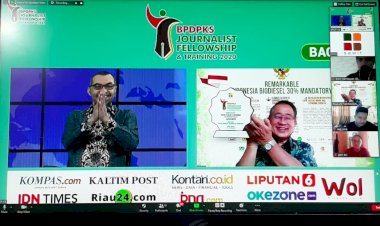Three Major Issues to Raise in Palm Oil Diplomacy
Together with relevant stakeholders, Indonesia continuously intensifies its efforts to strengthen national palm oil diplomacy.

Together with relevant stakeholders, Indonesia continuously intensifies its efforts to strengthen national palm oil diplomacy. There are at least three things that underlie the need for strengthening the national palm oil diplomacy.
Tri Purnajaya, Director of Trade, Commodities and Intellectual Property, Ministry of Foreign Affairs said that palm oil diplomacy should concern on three things. Firstly, palm oil is Indonesia`s largest export commodity.
“In 2017, the total export value of palm oil and its derivatives reached Rp309.15 trillion, far exceeding other national export commodities,” Tri said in the Palm Oil Diplomacy: Challenges and Strategy themed dialog and hearing session in Medan, Sumatera Utara, (18/10/2018).
Secondly, as a new and renewable energy source, the palm oil industry can be categorized as a strategic industry. The expanded B20 mandatory program will greatly help maintain national energy security.
Thirdly, palm oil industry supports millions of jobs and opportunities. Today, about 17.5 million workers, including smallholders works in the national palm oil industry and the number is estimated will continue to grow along with the growth of the Indonesian palm oil industry.
The three things, according to Tri, show the importance of palm oil in the attainment of SDGs, to feed the world’s growing demand for food, as well as to help oil palm smallhoders raise incomes. `The success of palm oil diplomacy depends on the involvement of stakeholders at the national and regional levels in order to produce an inclusive diplomacy,` said Tri.
However, the industry that has contributed greatly to the national economy is now under threats of global pressure. Attacks on Indonesian palm oil can be grouped into three categories, namely negative campaigns, discriminatory treatment of palm oil, and trade barriers in the form of tariffs and non-tariffs.
The recent plan is implementation of the Renewable Energy Directive II (RED II) by the European Union which essentially will limit the use of vegetable oil-based biodiesel which is considered to have a risk of environmental damage. It is suspected that RED II is only a pretext to limit the entry of palm oil products into Europe in order to protect vegetable oil, especially rapeseed which is produced by European Union member countries.*** (Source: Kemenlu)


































